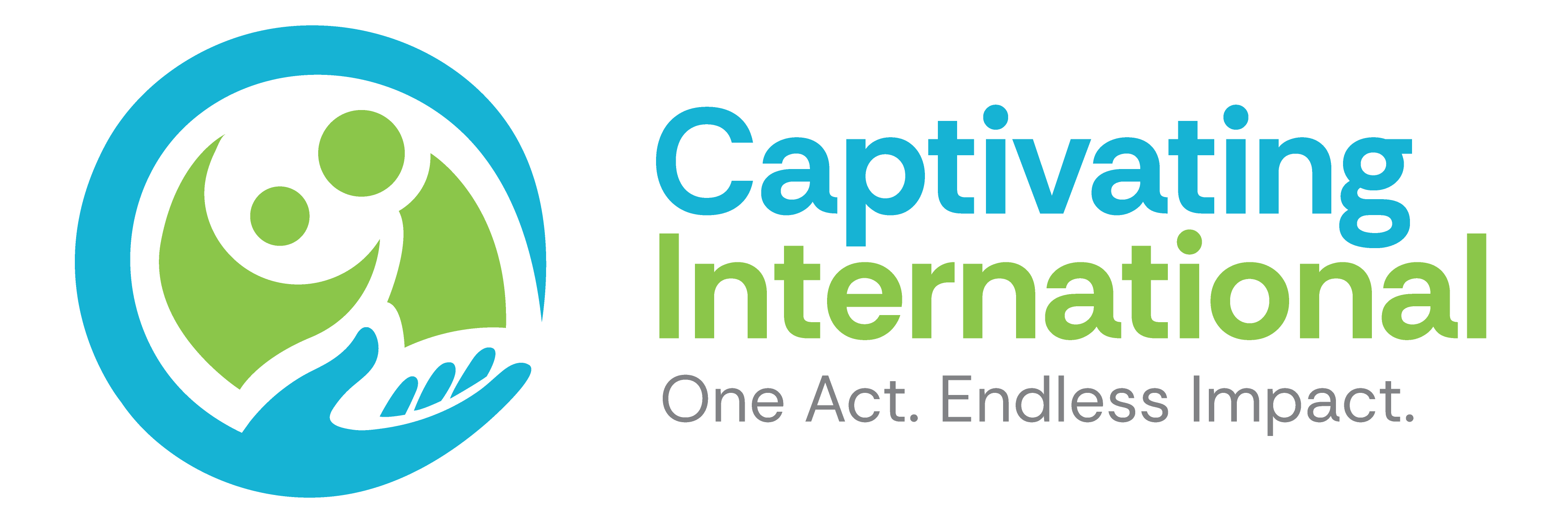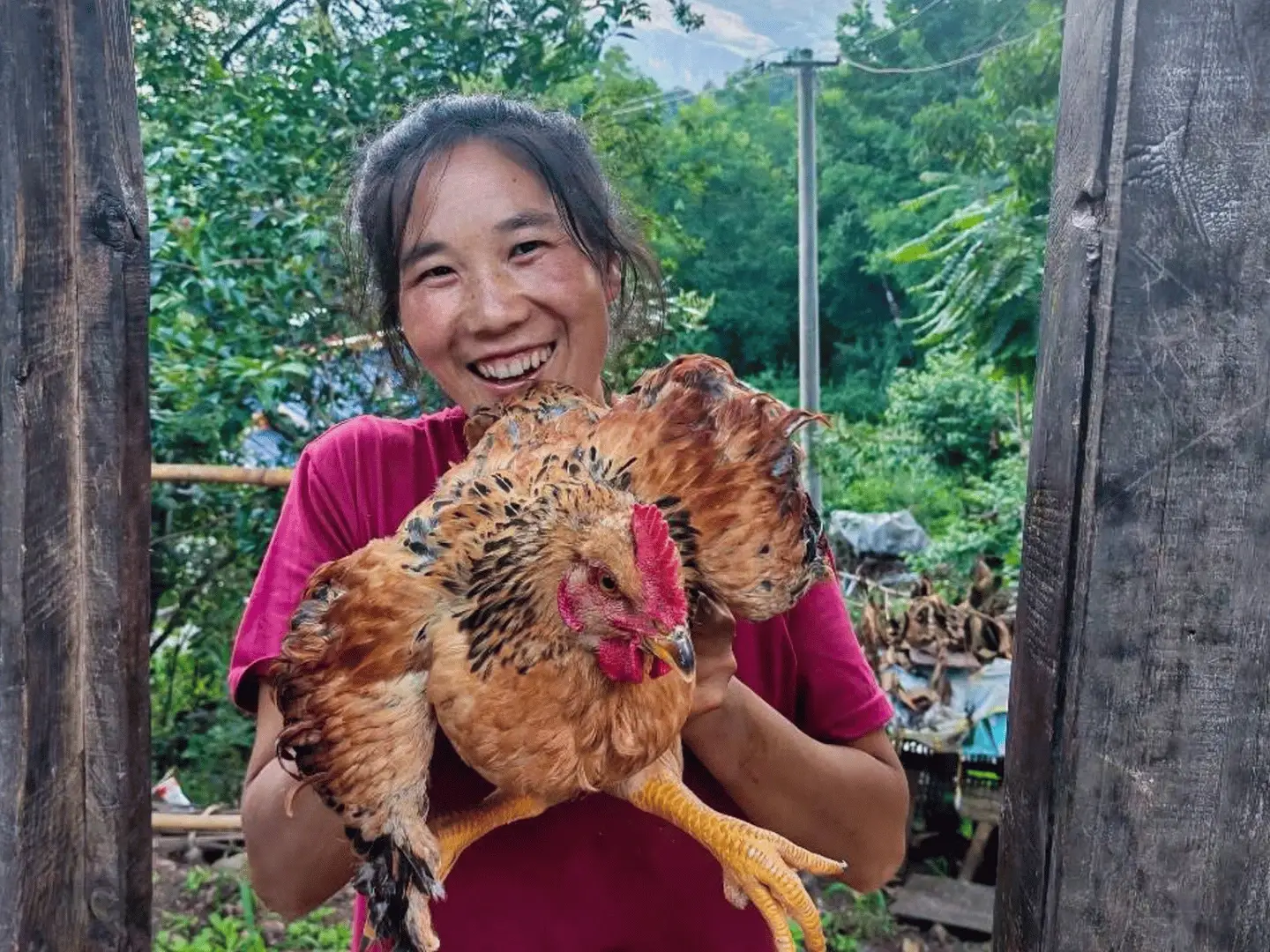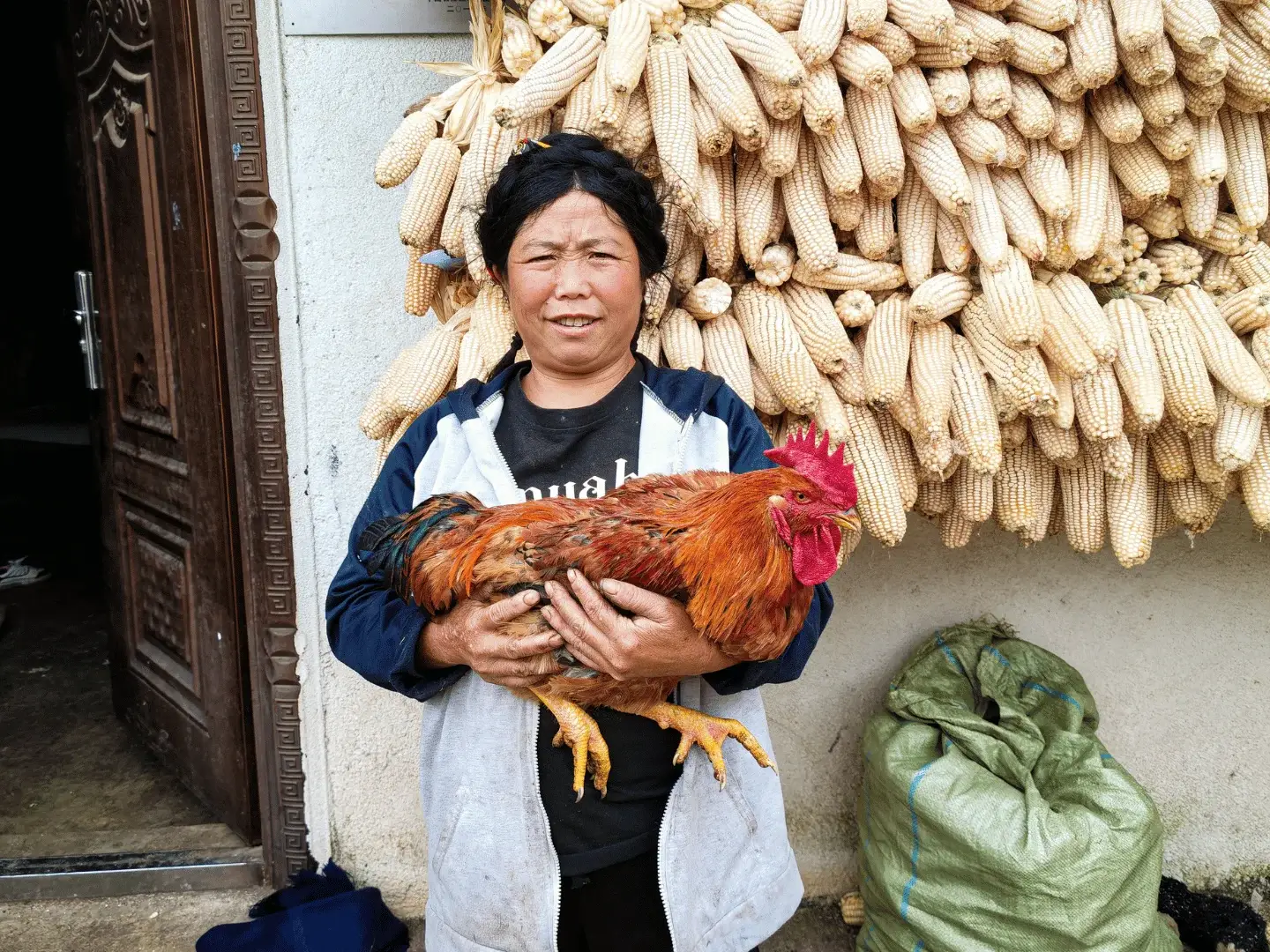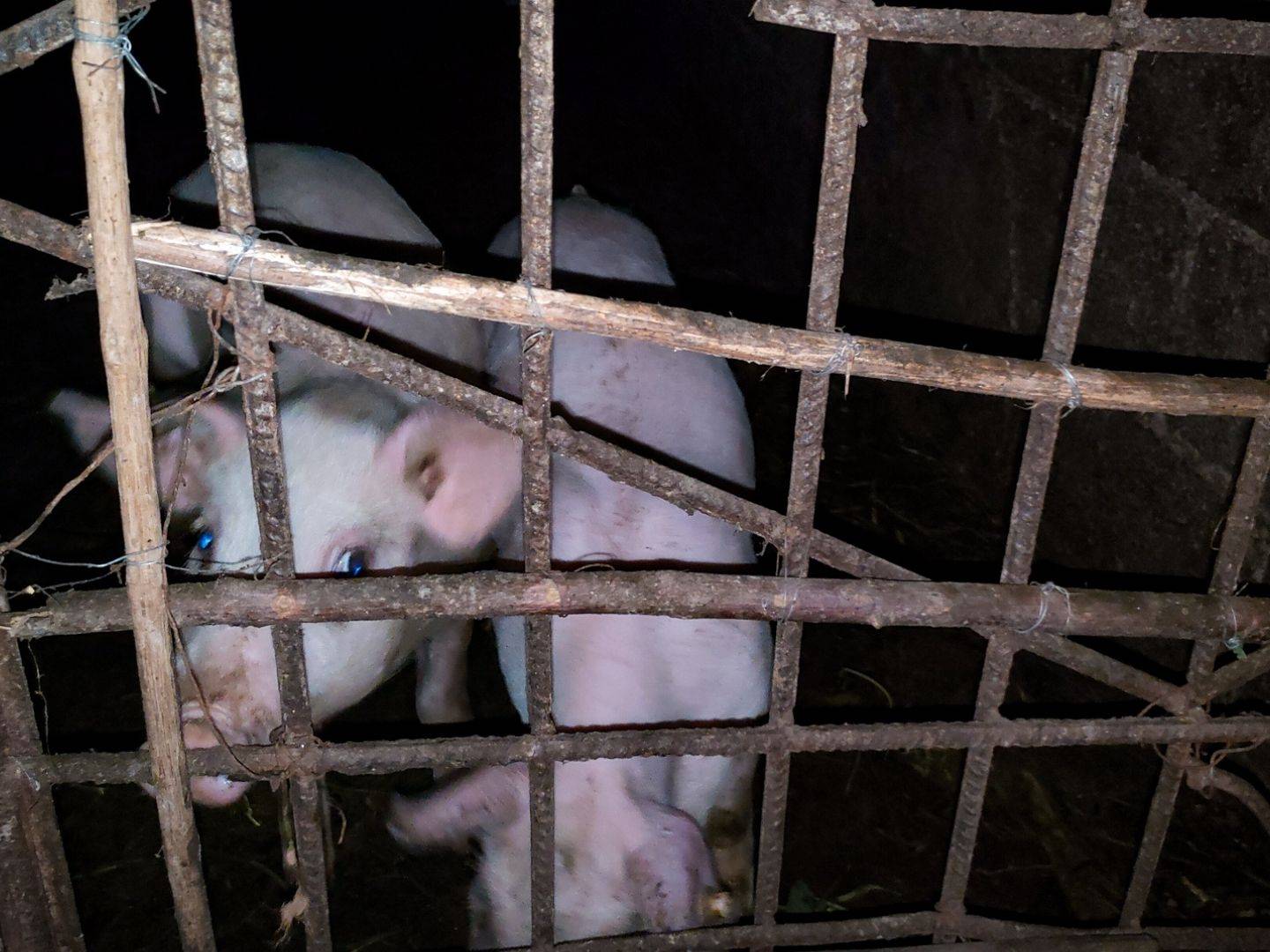One hot noon, our team arrived at Bomo Liniu’s home. She and her children warmly greeted us at the door in a Chinese regional language that we are not fluent in. The children enthusiastically translated the conversation, ensuring that we were at ease in communicating with them.
Through a brief exchange, we learned that the family’s main source of income is the husband’s migrant work. Every year, he leaves their community and works for 8 months. The family only sees him during the Yi New Year. While he is away, all the brunt of the household work goes to Bomo Liniu. She also manages their home farm, where they grow corn, potatoes, and sweet potatoes. However, her harvests do not bring enough income. She feels guilty for not bringing as much money into the family as her husband does. For so long, Bomo Liniu sought out job opportunities, but from where she lives, opportunities are thin. When she heard about our Pig Farming Program, she knew it was an excellent opportunity to finally contribute to the household finances!
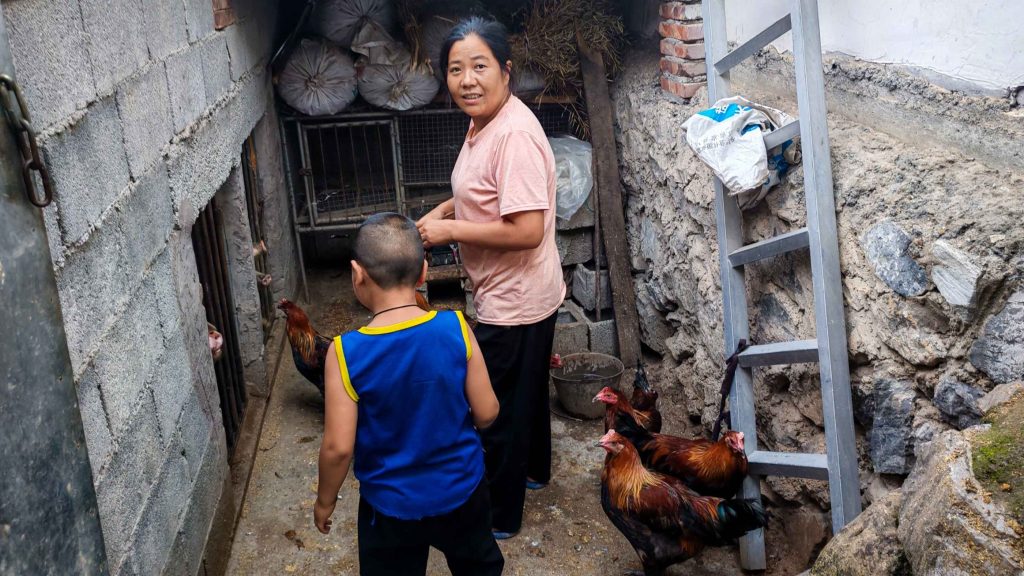
Now in her house, she proudly led us to the pigsty to resume our conversation. She recounts that when the piglets were first given to her, they struggled with heat and unfamiliar surroundings. They ate very little and appeared lethargic. They even suffered from diarrhea! Bomo Liniu was disheartened by this before the pigs fully adjusted to their new environment in two weeks. As they reflected on the pig-raising experience, the children referenced the journey of the Monkey King—it was full of trials.
When we asked her about the knowledge gained from the pig-raising training and any challenges encountered, her children happily translated that Bomo Liniu learned a lot! From learning about pig habits, disease prevention, and improved feeding methods. In the past, they only knew about the most basic idea of feeding, but now they have learned that nutrition and portioning are important. For example, feeding them whole corn is not enough; they also need to mix the cornmeal with feed to ensure better absorption and growth.
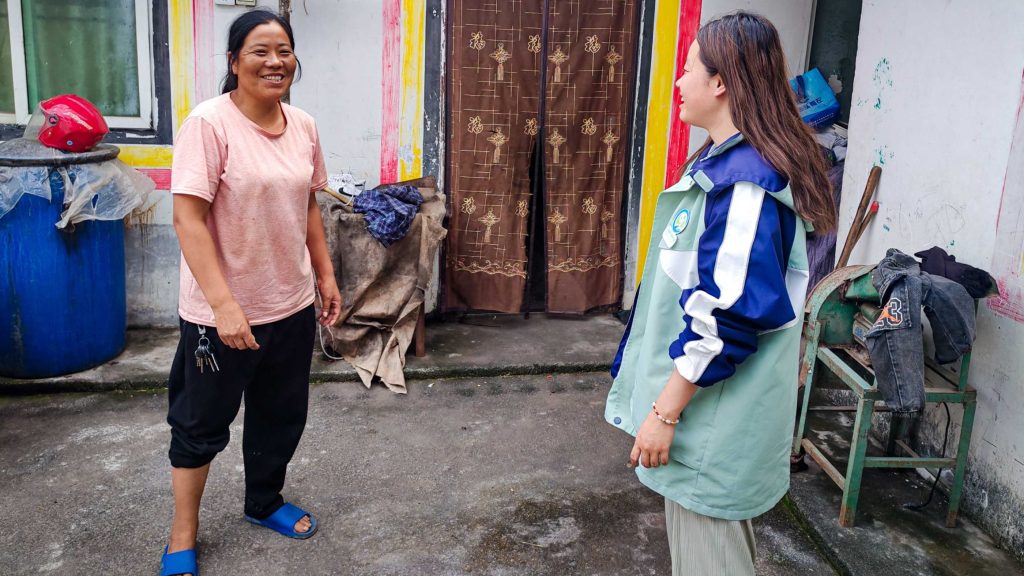
As for the diarrhea, Bomo Liniu remembered to give them antibiotics for three days, as per her knowledge in her training. They dropped 10 jin (6 kg) in weight due to illness. The children were amazed by how their mother remedied the situation. Not only did this pique the interest of Bomo Liniu, but also her children. One of her children said that if there were more training sessions in the future, they would happily attend with their mom so they could learn too. This way, they could help their mother in their household while their father was away.
Different families have different levels of valuing education. As for Bomo Liniu, she shared that her illiteracy hindered her from seeking new opportunities. She hopes that her children will study hard and not repeat the cycle of poverty through lack of education.
Before leaving, she expressed deep gratitude to all those behind the pig farming program: coordinators, staff, and donors. Not only was she given two piglets, but she was also gifted the lifetime knowledge of effective pig farming.
Our Partners

Be a Part of the Solution
By supporting the Pig Farming Program, you help provide crucial training, resources, and sustainable income opportunities for families in need.
Empower them today.
